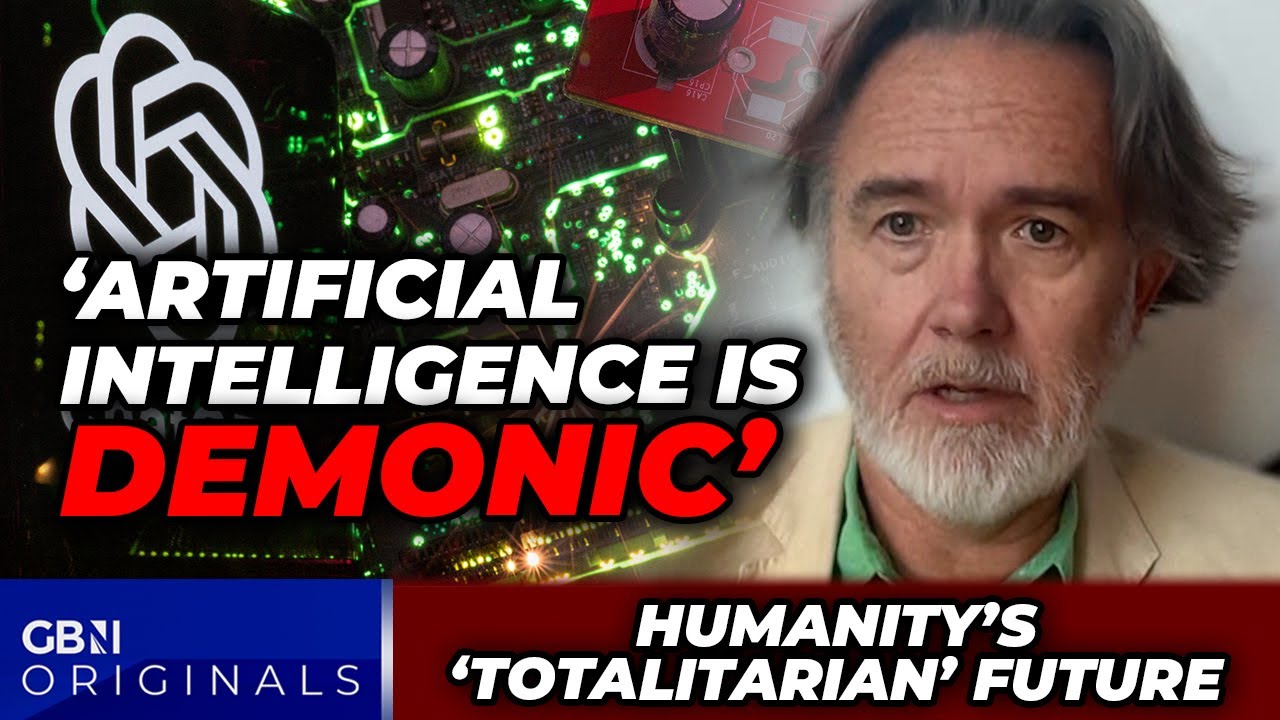Author Rod Dreher warns that artificial intelligence threatens to erode human identity and spirituality, potentially leading to a soulless, totalitarian future dominated by algorithmic control. He advocates for a revival of traditional Christian faith and strong spiritual communities as essential bulwarks against the cultural and technological crises facing Western society.
In the video, author Rod Dreher discusses his deep concerns about the impact of artificial intelligence (AI) on humanity, emphasizing that AI risks overwhelming human identity by blurring the boundaries between humans and machines. He highlights how people are increasingly turning to AI for emotional companionship, guidance, and even religious-like experiences, despite knowing AI is just an algorithm. Dreher warns that this dependence on AI could erode traditional human connections and realities, leading to a loss of genuine humanity.
Dreher goes further to describe AI as potentially “demonic,” referencing Silicon Valley figures who view AI as a conduit for higher, disembodied intelligences offering wisdom. From his Christian perspective, he interprets this as a dangerous spiritual deception, akin to channeling demonic forces. He shares a striking story of a religious scholar who, after involvement with occult practices, realized the entities he was communicating with were demonic and fled to Christianity. Dreher argues that merging humanity with machines threatens to dissolve the soul and enslave people to soulless, algorithmic intelligences.
The conversation also touches on the broader cultural and spiritual crises facing Western societies, including the UK. Dreher links the rise of digital culture and AI to a loss of traditional values and free speech, warning of a potential digital totalitarianism fueled by surveillance and social credit systems. He expresses concern about civil unrest and even civil war, particularly in relation to tensions with radical Islam and multiculturalism, suggesting that Western societies face a critical choice between submission or resistance to these pressures.
Dreher advocates for a return to ancestral Christian faith as a grounding force amid these crises. Drawing on historical examples like St. Benedict’s monastic communities and the underground church in Soviet-era Slovakia, he encourages forming strong, spiritually disciplined communities that can preserve faith and culture through turbulent times. He stresses the importance of both active engagement in the world and deepening spiritual life to resist the encroaching forces of technological and ideological domination.
In conclusion, Dreher urges people to recognize the spiritual and cultural challenges posed by AI and modernity, advocating for a revival of authentic Christianity as a source of meaning and resilience. He highlights the growing interest among younger generations in transcendence and mystery, often through occult or alternative spiritualities, and sees the church as uniquely positioned to offer true hope. His message is a call to prepare thoughtfully and faithfully for a future shaped by profound technological and societal upheaval.
